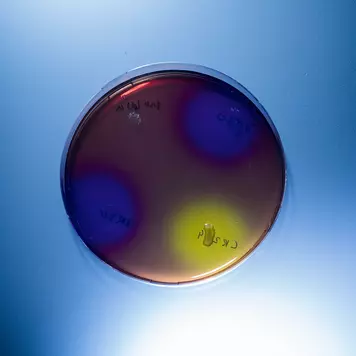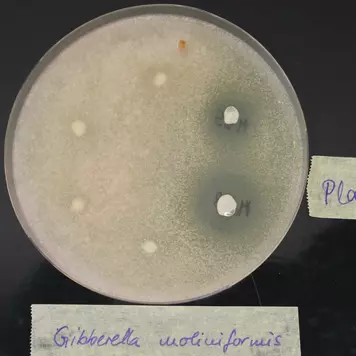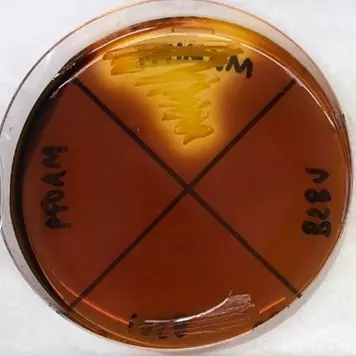Functional cultures for food
Our core research activity is the development of functional cultures for food. We are continually developing new screening methods to identify microorganisms with the ability to produce desirable bioactive metabolites such as antimicrobial; structural (e.g. expolysaccharides); nutritionally important (e.g. vitamin B12 and folates) or aroma-active metabolites and specific enzymes. In addition to these, we aim to identify microorganisms with the abilities to break down undesirable components, such as mycotoxins and FODMAPs, and unpleasant aroma substances.
Antimicrobial microorganisms for use as protective cultures in a clean label strategy have been a permanent fixture in our research for many years. The focus is on antifungal cultures for sourdoughs and other grain-based fermentations as well as for the fermentation process of cocoa beans in their countries of origin. Other products that hold great potential for the use of protective cultures, especially where an effect against the pathogenic bacteria Listeria monocytogenes would be advantageous, are fermented milk, meat and fish products.
In order to optimally exploit the effect of protective cultures in food, we are researching the antimicrobial activities responsible for this, including known bacteriocins such as pediocins, but also novel bacteriocins, antifungal metabolites and the interactions between antifungal cultures and moulds. A young field of research is the biodegradation of mycotoxins, which are produced by molds, by using selected cultures. This strategy expands the application potential of protective cultures.
In a first phase of food-related high-throughput screenings and food models, we investigate potential candidates for functional cultures for their desired activity in. In a second phase, we investigate the metabolic activities responsible for this. This includes molecular characterisation and formation mechanisms. The findings from basic research ultimately flow into the application of functional cultures in food and allow target-oriented optimisation strategies.
Research projects
- Goldkruste – Long-lasting and clean-label produced bread rolls (Direct funding)
- PlantEAT- Plant-based meat analogues produced by innovative pre-processing and extrusion (Funded by Innosuisse)
- CREATE – Microorganisms to promote healthy food from pulses (Funded by the Gebert Rüf Foundation)
- InnoBUN – Development and application of a multifunctional sourdough in buns (Funded by Innosuisse)
- Development of antifungal protective cultures for cocoa bean fermentation (Funded by Innosuisse)
- Bio-Control 2.0: Feasibility study for an organic control of non-fermented foods (Funded by ZHAW)
- Strategies for the reduction of mycotoxins in wheat: (Funded by ZHAW)
https://www.zhaw.ch/en/lsfm/research/interdisciplinary-collaboration/health-research-hub/strategies-to-reduce-mycotoxins/ - LISTprotect - Bio-Protection of meat and fish products (Funded by Innosuisse)
- BREADMOLD – Establishment of a collection of molds relevant in the baking industry (Funded by ZHAW)



